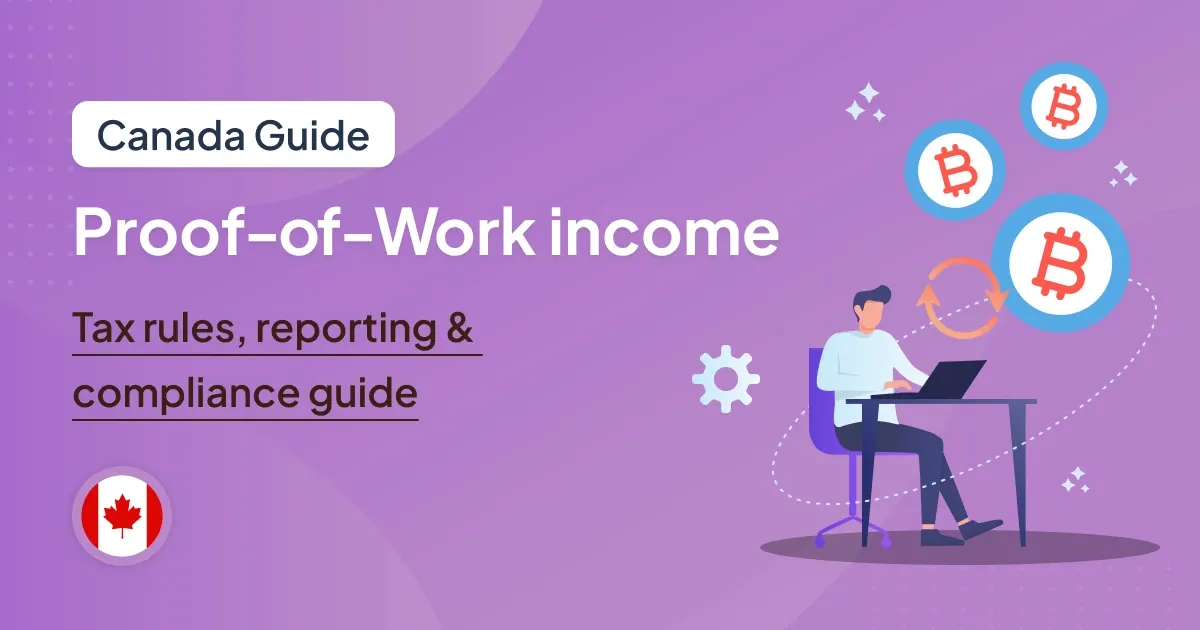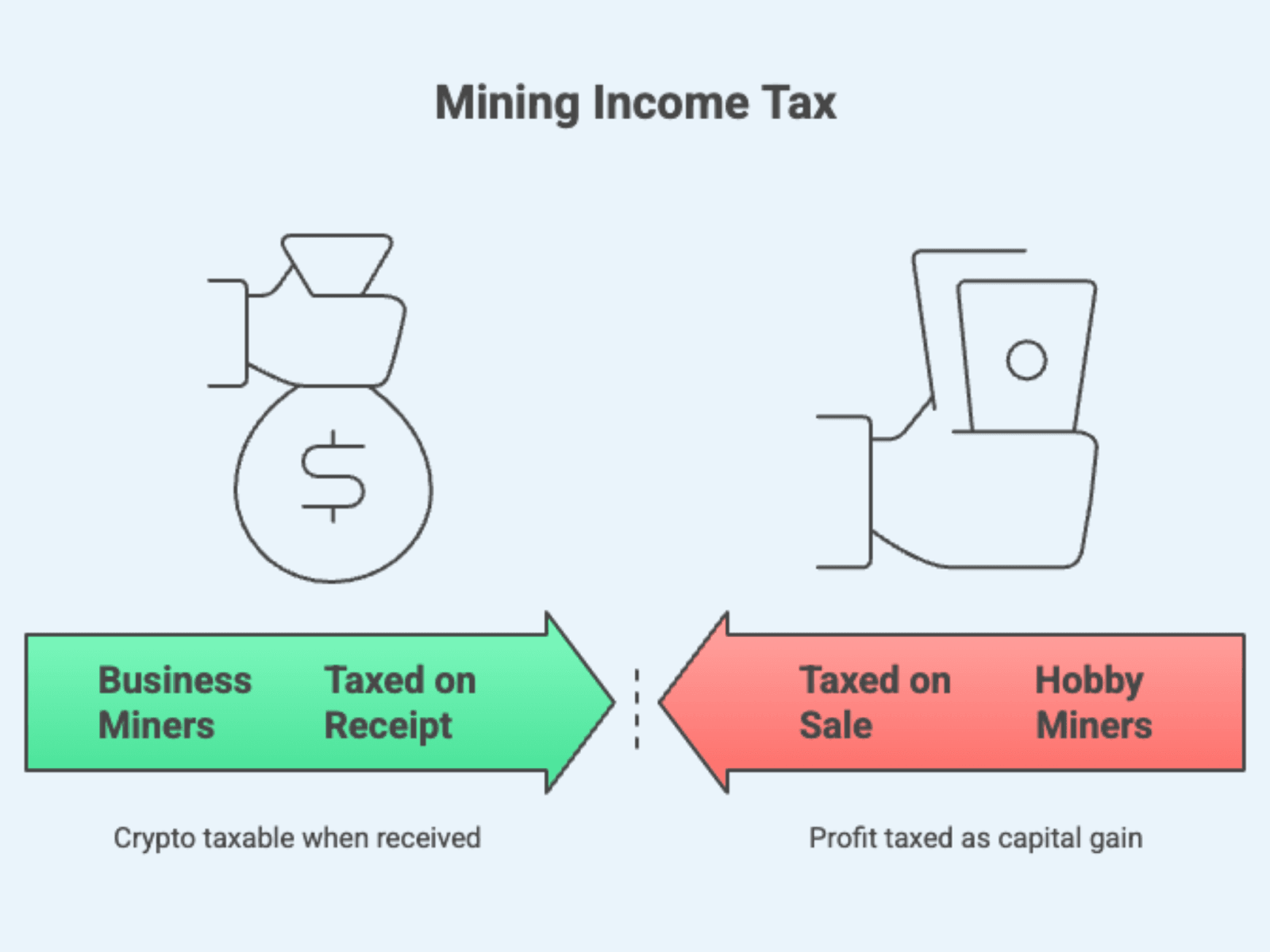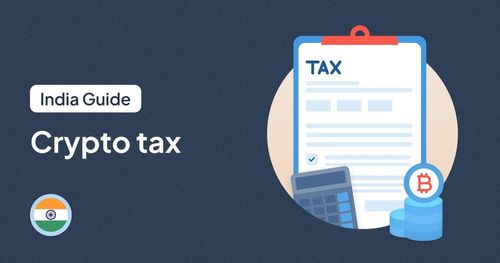
Are you earning cryptocurrency through proof-of-work mining? Then you should know how Canadian tax rules work. Mining crypto means using computers to process transactions and earn rewards. You receive coins or transaction fees as payment. It may look like free money, but the CRA (Canada Revenue Agency) treats it as proof-of-work income.
So how does proof of work tax work in Canada? Let’s break it down in simple terms.
Table of contents |
No credit card required
Hobby or Business? Why It Matters
The first question is whether your mining is a hobby or a business. The CRA decides this based on how you operate. Are you mining for fun, or to make a profit?
If you mine regularly and aim to earn income, it is likely a business. Even one serious mining setup can count as business activity.
This matters because it changes the question: how is mining income taxed in Canada?
- Hobby miners: If you mine casually and not for profit, you do not pay tax when you receive coins. The CRA does not see that as income right away. But when you sell or trade those coins, the profit is taxed as a capital gain.
- Business miners: If you mine for profit, your crypto is taxable the moment you receive it. You must report its value in CAD (Canadian dollars) when you earn it.
Many mining setups may be characterized as a business depending on factors like regularity, scale, and profit intent; classification is case-by-case.

Taxation of Mining Income
If your mining is a business, the government sees it like a service to the blockchain. The crypto you earn is treated as income in Canada. You must report it properly.
1. Income inclusion
You have to include the value of your mined crypto as income when you receive it. For example, if you mine 0.002 BTC or 1.5 ETH, record its value in CAD on that day. The CRA treats that amount as proof-of-work income.
Both block rewards and transaction fees are taxable business revenue.
2. No waiting to report
You cannot delay reporting until you sell your coins. You must record the value when earned. If the coin price later rises or falls, that change becomes a gain or loss when you sell.
3. Business profit and capital gains
When you sell your mined crypto, you may have an extra gain or loss. If your activity is a business, that gain may be part of your total business profit. The CRA taxes the coin’s value when mined, and then any later increase in price when sold.
4. Hobby scenario
If your mining is truly personal, you pay tax only when selling coins. In that case, only 50 percent of the gain is taxable. But the CRA rarely treats mining as a pure hobby.
So, do you pay tax on crypto mining in Canada? Yes. Unless your mining is casual and has no profit motive, it counts as taxable income.
Deductions and Expenses
Mining can be expensive. The good news is that business miners can deduct related costs. You pay tax only on your profit, not on total earnings.
Common deductible expenses include:
- Mining pool fees
- Electricity used for mining
- Internet and rent for your mining space
- Maintenance and small repairs
Also, mining equipment such as hardware (GPUs, ASICs), and cooling systems, typically falls under a specific class of depreciable property. In many cases, it qualifies for a 55% declining balance depreciation rate, although the first-year deduction is generally limited by the half-year rule.
For example, if you earn $5,000 from mining crypto and spend $1,500 on electricity and $1,200 on new hardware:
- $1,500 for electricity can be deducted immediately.
- $1,200 for new hardware must be deducted over several years through depreciation.
only the electricity reduces this year’s income directly, not the full cost of the equipment.
Additionally, if your expenses exceed your income, you may have a business loss that can offset other income. Hobby miners cannot claim these losses, but business miners can.
To ensure compliance, please confirm the correct classification for your equipment with a qualified tax professional.
These rules apply to all types of proof-of-work reward taxation.
GST/HST and Crypto Mining
Besides income tax, you might wonder about GST or HST. Do miners need to charge it?
The CRA clarified mining activities are not considered a taxable supply for GST/HST purposes
This means:
- Crypto miners do not charge GST/HST on block rewards or transaction fees.
- Also, they cannot claim GST/HST credits on related expenses.
In short, mining is outside the scope of sales tax. It should be reported as proof-of-work income for income tax purposes, not as a service.
However, if mining services are provided under a contract to a specific client, GST/HST may apply. Please consult your accountant to determine whether this applies to your situation.
Proof of Work vs Proof of Stake Tax
Both proof-of-work and proof-of-stake rewards are taxable, but whether income is business or property depends on each person’s situation.
For example, proof-of-work mining uses machines to generate new coins. The CRA treats it as business income. Proof-of-stake rewards often work more like investment income.
How to Report Mining Income
When filing taxes, you must know how to report mining income in Canada.
- Business miners report income on the T2125 form as business revenue.
- Hobby miners report capital gains when they sell coins.
Always keep detailed records:
- Date of mining
- Type and amount of crypto mined
- Exchange rate on that date
- Expenses like power, rent, and repairs
- Wallet addresses and sales
The CRA may ask for proof of every figure.
Stay up to date with answers to how is mining income taxed in Canada. The CRA may revise its guidance as crypto regulations evolve. Budget updates or new laws can change how mining is taxed in the future.
You can simplify crypto record keeping using digital tax tools. Platforms such as cryptact help track transactions and generate basic reports that follow local tax rules. They can save time, especially if you mine or trade often. These tools organize your income and expenses in one place, making it easier to prepare accurate filings under how to report mining income in Canada.
Now, let’s look at different factors to consider.
Business Income Reporting
If you mine crypto as a business or as a self-employed person, report your income as business revenue. You will do this on your T1 income tax return using Form T2125 (Statement of Business or Professional Activities). That is where you list your mining income and expenses.
Your net profit, which is income minus expenses, becomes part of your taxable income for the year. The CRA’s T4002 guide explains this process.
Most tax software tools now include crypto options or let you import data from tracking apps. Make sure you classify your proof-of-work income correctly as business income.
This covers all mining rewards that fall under proof-of-work rewards tax and forms a part of your total crypto mining income in Canada.
Capital Gains Reporting
If your mining is not considered a business and you hold your mined coins as an investment, you report gains when you sell them. This is done on Schedule 3 (Capital Gains) of your tax return.
Only half of your capital gain is taxable. For example, if you sell mined coins for CAD 2,000 more than their original value, you report CAD 1,000 as a taxable gain.
This method applies only if your mining activity is considered a hobby.
Foreign Asset Reporting
If you hold crypto on a foreign exchange or via foreign custodians and the total cost exceeds CAD 100,000 at any point in the year, you need to file Form T1135 (Foreign Income Verification Statement). The CRA classifies such crypto held abroad as specified foreign property.
Many miners will not reach that level, but it is still worth checking. These rules can apply even to digital wallets hosted outside Canada.
Staying Compliant and Avoiding Penalties
The CRA monitors crypto activity closely. It uses blockchain analysis and receives information from some exchanges. If you think your crypto income is invisible, it is not.
If you fail to report proof-of-work income CRA, you can face penalties such as:
- Interest on unpaid taxes
- Late filing penalties
- Gross negligence penalties up to 50 percent of the unpaid tax if you knowingly ignored the law
- In rare cases, criminal charges for tax evasion
The safest step is full compliance. If you missed reporting income in a previous return, fix it as soon as possible. You can adjust your return or use the CRA’s Voluntary Disclosures Program to declare unreported crypto income. Acting early helps reduce penalties.
Even small amounts must be reported. There is no minimum threshold. If you earned crypto through mining, you must report it. The CRA has confirmed that all crypto income, even a few hundred dollars, must be declared.
Final Thoughts
If you are doing proof-of-work mining in Canada, you must look at all aspects and evaluate whether to treat it as a business. The CRA looks at taxes on a case-by-case basis. Report income, claim expenses, and pay what you owe. Honest reporting keeps you safe.
Following how to report mining income Canada helps you avoid penalties and build proper tax records.
The clear answer to do you pay tax on crypto mining in Canada is yes. If you earn crypto through mining, it is taxable. The proof of work vs proof of stake tax Canada difference lies in how each type of reward is earned, but both are reportable.
If you need help managing your mining records and tax reports, try using cryptact to organize your data, track gains, and stay compliant with CRA requirements.
Stay organized, stay transparent, and handle your mining taxes with care.




